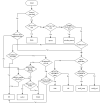I am writing some code to simulate a football tournament by comparing several teams on several parameters. I need to be able to knock out teams, edit some stats mid simulation, and be able to easily access individual teams data, what structure would I be best using? I had thought possibly vectors but I am very new to c++ and could do with some advice.
sorry if something similar has already been answered.
cheers
Dan

